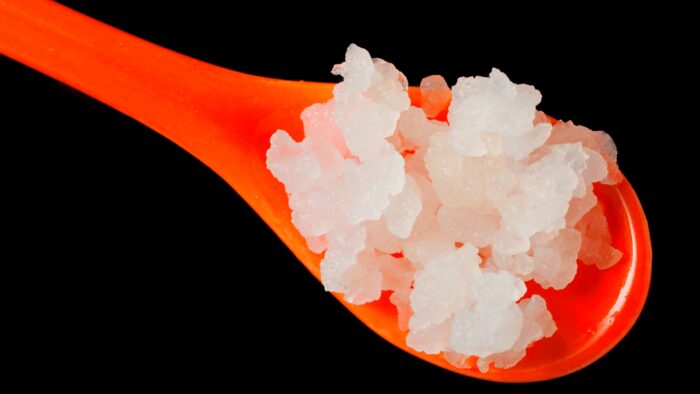What Are The Benefits Of Kefir?
Kefir is a cultured dairy product that consists of fermented milk. Kefir has been shown in some studies to have a protective effect on the gut, in particular in older adults.
What Is Kefir?
Kefir is a fermented milk product that has been popular in Eastern Europe, the Middle East, and Russia for centuries.
It is said to have originated with nomadic tribes who carried milk in leather bags which often became infested with yeasts, leading to fermentation of the milk.
Today kefir can be made from cow’s, goat’s, or sheep’s milk. You can purchase it in any supermarket, health food store, or online.

What Does Kefir Taste Like?
Kefir is a tart and tangy drink, with a consistency somewhere between milk and yogurt. It’s made from kefir grains (sometimes called “grains”), which are colonies of friendly bacteria and yeast that have been fermented in cow, goat, or sheep’s milk.
Kefir has more lactic acid than yogurt does. The taste can be anywhere from mild to sour to downright mouth-puckeringly sour, depending on how long the kefir grains have been fermenting for before they were added to the milk.
Some people even add fruit juice or fruit puree during fermentation for an extra flavor boost!
Read: What Is The Difference Between Yogurt And Kefir?
What Are Kefir Grains?
The cultures used are called “kefir grains” which are small clumps of yeast and bacteria arranged like cauliflower florets on top of each other and they will multiply indefinitely.

How Does Kefir Help You Maintain A Healthy Gut?
Some studies have found that kefir can help to maintain healthy levels of bacteria in the gut. These bacteria are believed to play an important role in digestion and overall health.
There are many different microorganisms within kefir, and it is believed that some of these microorganisms may play a role in protecting the health of the gut.
What Bacteria Are Found In Kefir?
Kefir contains many strains of bacteria including Lactobacillus acidophilus which are found in yogurt as well. These bacteria work to break down lactose into lactic acid, making the drink easier on those who are lactose intolerant.
Another strain of bacteria known as Streptococcus Thermophilus gives kefir its distinctive tangy flavor and thick consistency while also helping with digestion and bone health.
How Do The Bacteria In Kefir Help Your Digestive System?
The digestive system is the gateway to health and illness. The digestive system contains trillions of bugs, bacteria, and fungi that work together to keep our bodies running smoothly.
When these microorganisms get out of balance, we can experience a number of unpleasant symptoms such as bloating, constipation, diarrhea, and vomiting.
One of the most effective ways to maintain a healthy gut is by consuming the powerful probiotics in kefir-a natural fermented milk drink with beneficial bacteria!
Can You Use Kefir To Alleviate Stomach Bloating?
What do you drink when your stomach is bloated? Iced tea, water, lemonade… usually something cold. But what about kefir?
Kefir has been shown to be helpful for reducing or stopping many types of digestive complaints including constipation, diarrhea and gas.
Kefir can help with digestion by breaking down foods in the gut. It may also help break down some of the yeast strains that are often associated with bloating and other digestive disorders.
Some folks add cooled coffee or tea to kefir, which may make it even more effective at helping relieve stomach problems. This is because tea and coffee also contain compounds that have anti-inflammatory effects on the gastrointestinal tract.
Non-Dairy Kefir
Kefir can be made at home using water instead of dairy products if you choose not to consume dairy.
Water kefir is a probiotic beverage that’s made by adding water kefir grains to sugar and other ingredients, including fruit juices or pieces of fruit.
Water kefir has many benefits- it can lower blood pressure, improve digestion, increase energy levels, and more!
Water Kefir is sometimes called “Jun” which refers to the fermented tea drink popular in East Asia.
Water Kefir contains B vitamins and several minerals including iron and zinc. Some studies have suggested that due to its antimicrobial properties water kefir may help prevent food poisoning.
Water kefir grains may not be a suitable option for those who are sensitive to grains due to Celiac disease or gluten intolerance.
How To Make Water Kefir
Water kefir is incredibly easy to make at home from water kefir grains that can be purchased online or from a health food store.
What you need:
- 1 cup of milk kefir grains, or 2 tablespoons dried milk kefir starter. For this recipe I will be using store-bought water kefir.
- 1 gallon of water (filtered)
- 1 organic lemon, remove the seeds but leave some pulp for flavor if desired.
- Honey or sugar, to taste (optional). You can also use maple syrup, brown rice syrup, stevia powder.
- 1-gallon glass jar with a lid.
What you do:
Add water kefir grains and lemon juice to the jar. If using sugar or honey instead of water kefir grains, add this to the jar now. You can also add 2 tablespoons of dried milk kefir starter if desired.
Tightly secure lid and place in a warm spot (70-80 degrees) for 24-48 hours. Over time the grains will grow and give off carbon dioxide which is what makes the water kefir fizzy when opened.
After 24-48 hours move the jar into the fridge to cool completely before drinking. After it has been chilled, you can strain out your water kefir grains or leave them in depending on your preference, either way, tastes great!
Water kefir is best consumed within 5 days after making it but may last up to 7 days in the fridge with proper storage. For extra fizz, you can add a few tablespoons of sugar or honey before placing it in the fridge.
You can also freeze your water kefir until you are ready to use it!
Any flavorings added after step one should be discarded 48 hours after adding as they will no longer be good. If using a dried milk kefir starter, only add what you need and store any leftover dried grains in a sealed container in the freezer for up to 1 year.
